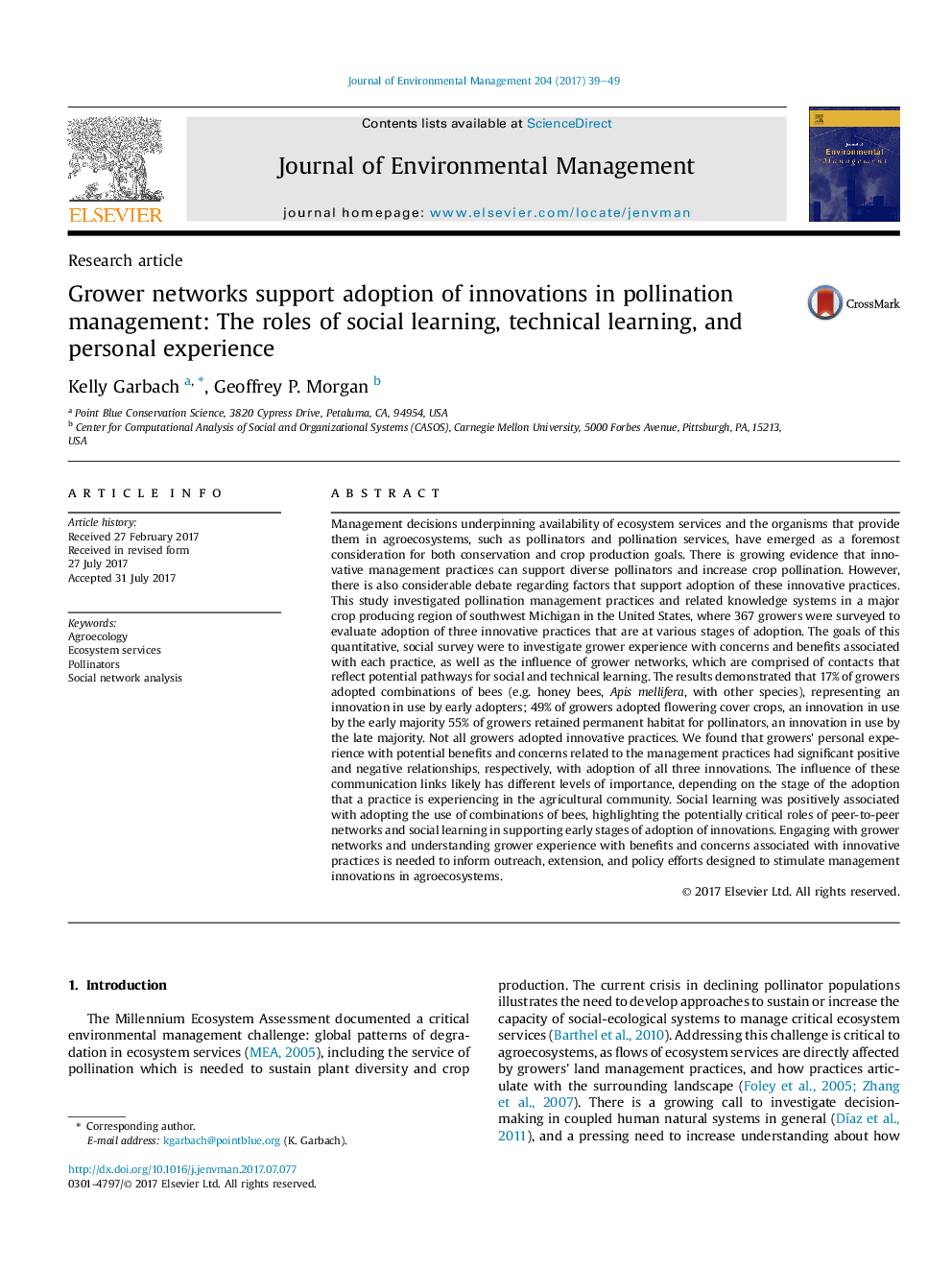ترجمه فارسی عنوان مقاله
شبکه های رشد دهنده از پذیرش نوآوری در مدیریت گرده افشیدن حمایت می کنند: نقش یادگیری اجتماعی، یادگیری فنی و تجربه شخصی
عنوان انگلیسی
Grower networks support adoption of innovations in pollination management: The roles of social learning, technical learning, and personal experience
| کد مقاله | سال انتشار | تعداد صفحات مقاله انگلیسی |
|---|---|---|
| 113336 | 2017 | 11 صفحه PDF |
منبع

Publisher : Elsevier - Science Direct (الزویر - ساینس دایرکت)
Journal : Journal of Environmental Management, Volume 204, Part 1, 15 December 2017, Pages 39-49
ترجمه کلمات کلیدی
کشاورزی خدمات محیط زیستی، گرده افشانی، تجزیه و تحلیل شبکه شبکه،
کلمات کلیدی انگلیسی
Agroecology; Ecosystem services; Pollinators; Social network analysis;

